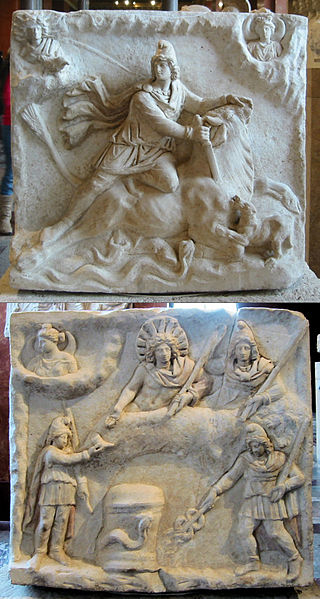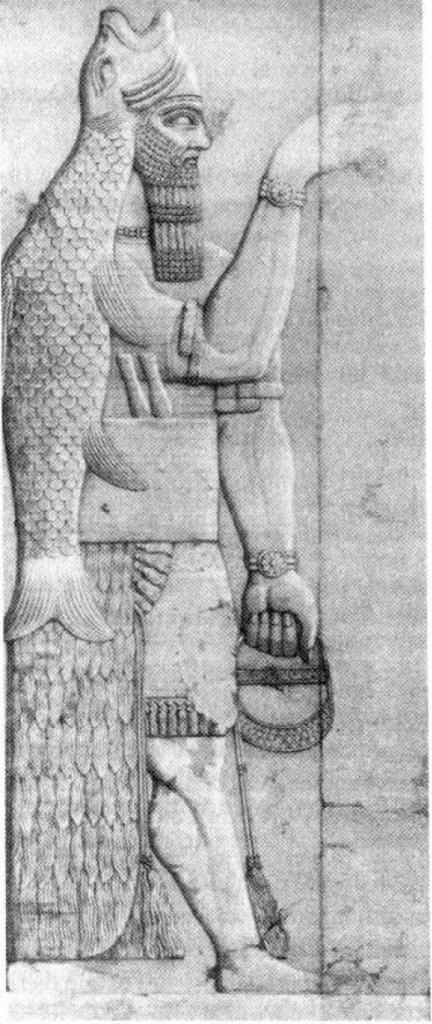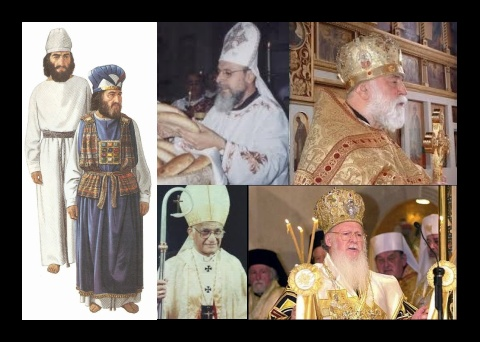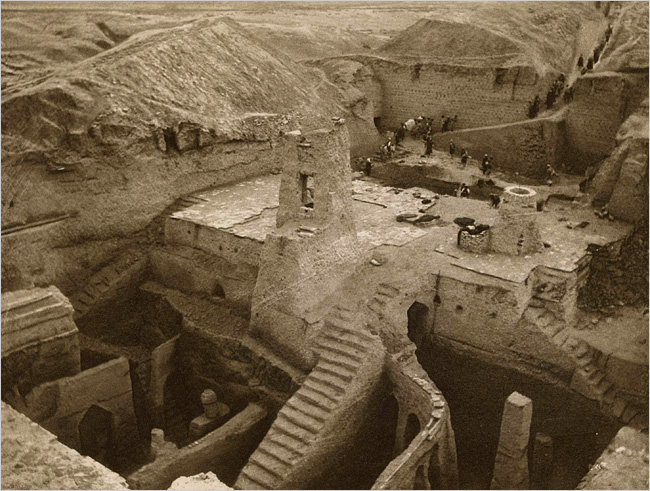FHII said:
It may come as a shock to you, but God doesn't love everybody …
That’s true, but the
only people Jesus did not treat with love and compassion were the arrogant, self-righteous Scribes and Pharisees who took great pride in the fact that they followed the law to the letter and anyone who did not believe and live as they did they considered beneath them … including Jesus … and a whole generation of Christians whom they hated, and they actually believed they were justified by Scripture in hating Christians, in trying to silence them, and persecuting them to death.
FHII said:
No, a Christmas card or gift isn't going to defile me cause I don't accept them. Like I said, I appreciate the thought and I show kindness to those who offer me such. I gently refuse, and make every effort to show my appreciation.
Are you aware that every day, day after day after day, the priests in the Temple of God made sacrifices and offerings that were gifts from other nations …
pagan nations? And in fact anyone from any nation was free to come to the Temple, the outer courts were for the nations, and they were allowed to offer God sacrifices and offerings … and God accepted those gifts.
And when the
pagan priests came from the east and brought Jesus gifts at his birth, did Mary and Joseph “kindly and gently, showing their appreciation” refuse the gifts?
And when the sinful woman brought the alabaster box of precious ointment and anointed Jesus’ feet, did he kindly and gently, showing his appreciation say, “I’m sorry, but I don’t agree with your beliefs, so I cannot accept your gift”?
But perhaps this whole thing proves just how true Jesus' words are ... those who are forgiven much, love much.
FHII said:
But the bottom line is that I have asked you, "hey, don't wish me merry christmas!" and you turn around and call me arrogant!
No FHII, I called you arrogant because you confessed that a woman at your school has apparently bent over backwards to do the politically correct thing and “sanitize” the religious aspect of Christmas to appease your religious fastidiousness and yet you called her efforts “low and gutter trash.”
FHII said:
Your doctine is to "love everybody"... Fine. Love me by respecting my wishes.
FHII, the most loving thing I can do is to tell you the truth, and I have spent considerable time telling you, showing you the truth, which you can see with your own eyes. But you have things mixed up. You’re not judging the truth about Christmas based on the actual evidence, you are judging the evidence based on doctrines taught by men. You confessed of your own self that bottom line, you choose to “trust your sources,” even though in your heart of hearts you are at least beginning to realize that your sources don’t have any evidence! That in fact, what evidence there is does not support their doctrines. But you’re right, it is your choice. Choose carefully, and do not under any circumstances put your trust in men. God has given us all the evidence we need to know the truth, and bottom line, "the truth" is not between you and your sources, it’s between you and God.
In Christ,
Pilgrimer
Sweet Pea said:
What about Mithras? Do you have any info about that?
First please understand that Mithraism was a
mystery religion, which means their beliefs were not written down or recorded but were only shared verbally to initiates. And even their celebrations and rites and rituals were all secret, they had no public celebrations. So from the very outset the claim that Christianity adopted anything from this secretive cult contradicts what we actually know about it.
What we do know about Mithraism is derived primarily from archaeological artifacts such as dedicatory inscriptions and what is called “tauroctony” (icons or reliefs carved into stone depicting scenes representing the basic beliefs). The primary and most commonly found tauroctony depicts the scene of Mithras slaying a bull with the sun god Sol and the moon goddess Luna watching. Another tauroctony depicts Mithras and Sol feasting on the bull. Here are examples of these icons.

The places where they gathered were called “Mithraeum,” which were underground caves. Some 650 have been discovered. The archaeology of these Mithraeum throughout the region shows that the primary celebration, indeed the only celebration of Mithraism, was a banquet imitating the legend of Mithras and Sol feasting on the carcass of the bull Mithras had slain. According to an inscribed bronze plaque called the Virunum album discovered in 1992, this festival of commemoration took place on June 26. In the excavations of the Mithraeum archaeologists have found various feasting implements such as forks and other utensils, as well as bones from animals and fruit residue. But the most commonly found objects are cherry stones, which agrees with the Virunum album that this Mithraic festival was celebrated in June when cherries are harvested.
There is no mention or evidence of any other celebration of those who practiced the Mithraic mysteries, although a listing of the members and their ranking in the seven levels of initiation show that the highest rank a follower could reach was that of Pater, which is governed by Saturn, not the Sun. While Sol is present in Mithraic tauroctony, it is Saturn that is given the highest rank in the Mithraic grades. And nowhere has there been any mention of a birth date of Mithras. The only information there is about beliefs about his birth is that it was believed Mithras was born from a rock fully grown. A date is not known to historians or archaeologists, and indeed, in many ancient religions a particular birth date is not celebrated although legends about the birth of various gods and goddesses may abound. And nowhere is there any evidence that the Mithraic religion observed any kind of festival or holy day on December 25, or at any time during the winter months.
And rather than adopting Mithriasm or it's beliefs or practices, Christianity was bitterly opposed to Mithraism which is also evident by the many votive coins that were left lying strewn about on the floors of the mithraeum when the Christians destroyed these places of pagan worship in the 3rd and 4th centuries. They considered the coins to be polluted and left them lying where they had fallen. However, Mithraism was a relatively small religion compared to Christianity, primarily observed by Roman legions, with only a few hundred mithraeum and those very small indicating that the followers were not as numerous as some suggest. And by the 4th century the Mithraic cult had completely died out.
And that is the current state of knowledge about Mithraism, a highly over-rated religion that some suggest was a rival to Christianity, but without any evidence, and indeed, the evidence is to the contrary, that Mithraism was limited to a small percentage of the population, it's beliefs and practices a "mystery" known only to the initiates, which would make it very difficult for Christians to adopt it's beliefs or practices since they were secret, and with the archological evidence that the only known festival of Mithraism was a summer celebration, it makes it rather remarkable that a serious scholar could suppose that Christianity's celebration of the birth of Jesus, which has ample historical and archaeological support, could have been based on a religion for which there is no evidence for a December, or even a winter celebration at all.
Sweet Pea said:
The problem would be if Christmas is a pagan celebration just covered up with Christian names (some say this is what the Pope did to convert Pagans... let them keep their festivals but put Christian names on them.
I’ve heard that, it is a common charge of the anti-Christmas/anti-Easter/anti-Christian crowd, but I have yet to see any kind of historical evidence for it. Allow me to share with you a little history on what was happening in the period when Christians were supposedly adopting pagan celebrations, some claim because the pagans didn’t want to give them up, and others claim it was to make Christianity more palatable for pagans. But here’s the truth.
For its first 281-year history Christianity had been illegal and Christians had undergone centuries of persecution which culminated in what historians consider the most pervasive and bloodiest persecution of all under Emperor Diocletion in the late 3rd/early 4th century. The record of what Christians suffered during this dark period is quite extensive, graphic, and chilling. Rome attempted to force Christians to return to the worship of the pagan gods of their fathers but was unsuccessful although they used all manner of punishment; property, businesses, wealth were confiscated, Christians were arrested and imprisoned, tortured, killed, along with their wives and children.
But no amount of persecution had been able to quench the fire of Christian faith or drown it in the blood of Christians. And in 311 A.D., the Roman Emperor Galerius made a deathbed decree that finally ended the centuries of persecution and made Christianity a legal religion. A copy of that decree is linked below so you can read it for yourself and know the truth of these things.
http://www.fordham.edu/halsall/source/edict-milan.asp
And when you read that edict notice that the reason the Roman Emperor gave for ending the persecution of Christians and attempting to force Christians to return to the pagan worship of their ancestors was that they refused, even on pain of death, to even pay token homage to the pagan gods of Rome. Now this is direct testimony from the emperor of Rome who states in a public decree that not only were Christians
not adopting paganism into their worship, but Rome gave up even trying to force them to even acknowledge the pagan gods. And mind you, all a Christian had to do in these dark days was appear before a magistrate, take a pinch of incense, and sprinkle it on hot coals in a brazier as an homage to the gods of Rome, and they would be free to go. But even this small act of compromise was refused by the vast majority of Christians who suffered and even died for it. Those who suffered torture for the faith were called “Confessors” because they confessed worship of Jesus Christ alone.
And then two years later, in 313 A.D., Emperors Constantine and Licinius issued another edict called the Edict of Milan (also found at the link above) in which they officially
legalized Christianity, granted to Christians their property rights, ordered that all confiscated property be returned, and adopted a political course of “freedom of religion,” which the world would not see as a national state policy again for another 1463 years with the founding of America.
So when our critics claim that Christianity did not “begin to celebrate” Christmas and other festivals until the early 4th century, explain to them that it wasn’t until the early 4th century that Christians were able to worship and celebrate the faith
publicly, but that early Christian documents show that Christmas and Easter were being observed centuries before.
But as is our wont, as soon as we Christians were free from the imminent threat of torture and death, we turned our attention to fighting over doctrine. Almost immediately disagreements that had been simmering beneath the surface boiled over on matters of the mode and manner of our worship. Long and impassioned letters were exchanged between the churches discussing these issues, but in all this voluminous amount of material there is not one single letter or fragment or treatise that even mentions anyone anywhere “adopting” any pagan holidays for any reason. And that in spite of the fact that Christians were discussing and debating every detail of our faith, of our beliefs, and of our worship. What does exist is a wealth of writings against pagan practices and comparing the lowness of paganism to the beauty and holiness of Christian worship and celebrations. And keep in mind we are talking about a generation of Christians who still bore in their bodies the proof of their faithfulness and absolute refusal to compromise the Gospel with paganism. The claims made by the anti-Christmas anti-Christian crowd is nothing less than slander of a whole generation of Christians who lost everything, their bodies cruelly broken and bloodied, and for many their very lives forfeited rather than compromise the Gospel of Christ.
And the notion that Christianity had to adopt pagan practices to entice converts or to make Christianity more palatable to pagans is also historically and grossly untrue. The truth is there had been a mass conversion to Christianity by the Roman people and in 361 A.D. a Roman Emperor came to power named Julian, called by Christians Julian “the apostate.” Emperor Julian was a rabid pagan and attempted to restore the pagan worship and festivals of the old Roman gods (the Hellenic religion) which were being neglected and the pagan temples had fallen to rack and ruin. So Julian spent lavishly to rebuild the temples, hire an army of priests, and restore the sacrifices and offerings to the old roman gods. But he wasn’t satisfied because the people had not returned to their pagan roots. So in June of 362 A.D. Julian wrote a letter to his pagan High Priest named Arsacius. In that letter, which I am linking to below, read carefully what this Roman emperor had to say about why so many Romans had converted to Christianity. It was because the Christians (whom Julian called “atheists”) led such loving, godly lives. They were known for their humility and charity, not only caring for their own poor, but even caring for the poor among the pagans! They were honest in business dealings, and not given to drunkenness and sexual immorality. So no less than the Christian-hating pagan emperor of Rome testifies in writing that Christianity was succeeding in converting the Roman people away from paganism and to Christ because they were “outdoing” the pagans in good works!
http://www.tertullian.org/fathers/julian_apostate_letters_1_trans.htm (scroll down to letter #22)
Now this was the reason the Emperor of Rome gave for the success of Christianity, not because Christians were adopting paganism to make Christianity more palatable, and certainly not because the Roman people didn’t want to give up their pagan festivals. The truth is the exact opposite, according to no less an authority than the emperor of Rome, the Romans were abandoning the old pagan gods and their worship and celebrations in droves, so much so that paganism was dying in the Roman Empire and Julian tried, unsuccessfully, to revive it.
But even more, notice that in this letter the Emperor instructed his high priest to have all the pagan priests begin to
emulate the Christians in order to try to win back the masses of Romans who had converted to Christ! The polar opposite of what our critics claim, that it was Christianity that adopted paganism. Nothing could be further from the truth.
And that is truth based not on some book some man wrote 20 years ago about what he believes happened in those years. Nor is it truth based on what some 12th century monk said he believes happened back then. These are the writings of the emperors of Rome, who were certainly in a position to know the truth of these things.
And the truth is that whole generation of Christians are being slandered and maligned, accused of compromising the Gospel and adopting pagan celebrations and beliefs, when the truth is that history, even the enemies of Christ, bear witness in writing to the exact opposite, that Christians were every day laying down their lives for the Gospel, living pious lives of such humility and charity to everyone, even to pagans, that men and women were drawn to Christ and refused to return to their old pagan ways, and when necessary these Christians gave up everything, even their very lives to remain true to the Gospel of Christ, bearing in their own bodies the proof of their faithfulness.
In Christ,
Pilgrimer





